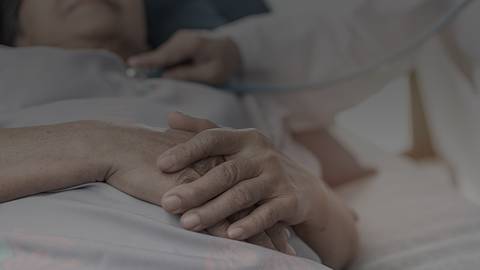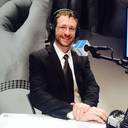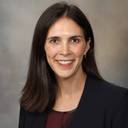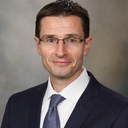Cardio-Oncology Perspectives on COVID-19 from the Mayo Clinic
Dr. Birnholz:
Coming to you from the ReachMD Studios, this is COVID-19: On the Frontlines. I’m Dr. Matt Birnholz.
It’s been known for some time that patients with pre-existing health conditions hold a much higher risk of severe complications from COVID-19.
Among the highest risk patient populations are those with cancer and heart disease, respectively. To get a better sense for how some specialists in these fields reacted and responded to the entrance of COVID-19 into the U.S., we caught up with two members of the cross-disciplinary Cardio-Oncology clinic at Mayo Clinic. Cardiologist Dr. Joerg Hermann joined us first to share some of his perspectives on this health crisis. Let’s hear from him now.
Dr. Hermann:
I think the first and greatest impact is just confusion and fear. There’s so much uncertainty and anxiety. We really don’t know what to do anymore, what’s best, and how this will affect us even more than what we’ve already seen economically, physically, emotionally. And as we’ve all heard, there are certain risk populations; those who have pre-existing cardiovascular conditions and those who are older.
We’ve already had a few calls and notes coming in from patients wondering about their particular risk, but I think at the end, we’re all at risk unfortunately. And so there are different elements to this, and besides the federal or governmental actions that are needed, from the medical community, I think it’s critically important to emphasize that no healthcare system in the world is able to cope with this if it is left unattended.
If we have this exponential rise in case numbers exceeding our capacities as if everyone is coming in at once, and if there is just a smaller percentage of those infected, given the millions we have in this country even for the U.S., it’s beyond capacity of what we can do to care for the critically ill among those infected. So I think it’s critically important that we all, as a nation, team up and work together and try to conserve those precious resources. As we do so, this will extend the period this virus is circulating, so we’re just spreading it out over a longer period, but it’s still very important for us to realize that this is needed so we keep below the capacity of what our healthcare system can do.
In Italy, it decompensated, as we all know, in very drastic formats. It just didn’t have the resources capacity China had. They couldn’t build several 1,000-bed hospitals in a week. And also just the sheer medical supplies and the simplest supplies. So I think it’s very important for all of us to be aware of this, and to contribute in a way that we can. But again, going back to this whole anxiety aspect, I don’t think it’s a reason to panic for patients that have cancer, if they feel like they have a compromised immune system, if they have cardiovascular diseases, or if they have both. Because at the end, we’re all at risk and we’re still learning what the best predictors are, what tools we can use as far as biomarkers, and then how we react to these biomarkers.
Dr. Birnholz:
We next spoke with medical oncologist Dr. Kathryn Ruddy, who focused on some steps her team at Mayo Clinic has taken to help keep their at-risk patients safe.
Dr. Ruddy:
This is rapidly evolving from day to day, and we’re all trying to figure out how best to protect our patients and are certainly very concerned about the risks to immunosuppressed patients in oncology.
From a cardio-oncology standpoint, we’re really trying to figure out ways that our cardiologists can support our patients without seeing them in person because we know that the more contact people have with the health system, the more contact they have with any other people, the more risk of transmission there is. So, Dr. Herrmann and I have been talking and thinking about how to really ramp up the phone and electronic consultations we have available for cardio-oncology. And I think that’s not only specific to cardio-oncology, but for all types of care across oncology; we’re trying to figure out who we can help virtually and don’t need to bring into the Mayo Clinic Cancer Center.
Of course, some patients still need to come in. People who are actively on chemotherapy, we need to be able to administer that here on site but others we can care for from afar and that’s really a major push of our efforts this week, is to figure out who those patients are and to provide care from afar.
Dr. Birnholz:
That was Dr. Joerg Hermann and Dr. Kathryn Ruddy from the cardio-oncology clinic at Mayo Clinic.
For ReachMD, this is COVID-19: On the Frontlines.
For continuing access to this and other episodes, and to add your perspectives toward the fight against this global pandemic, visit us at ReachMD.com and become Part of the Knowledge.
Thank you for listening.




Facebook Comments